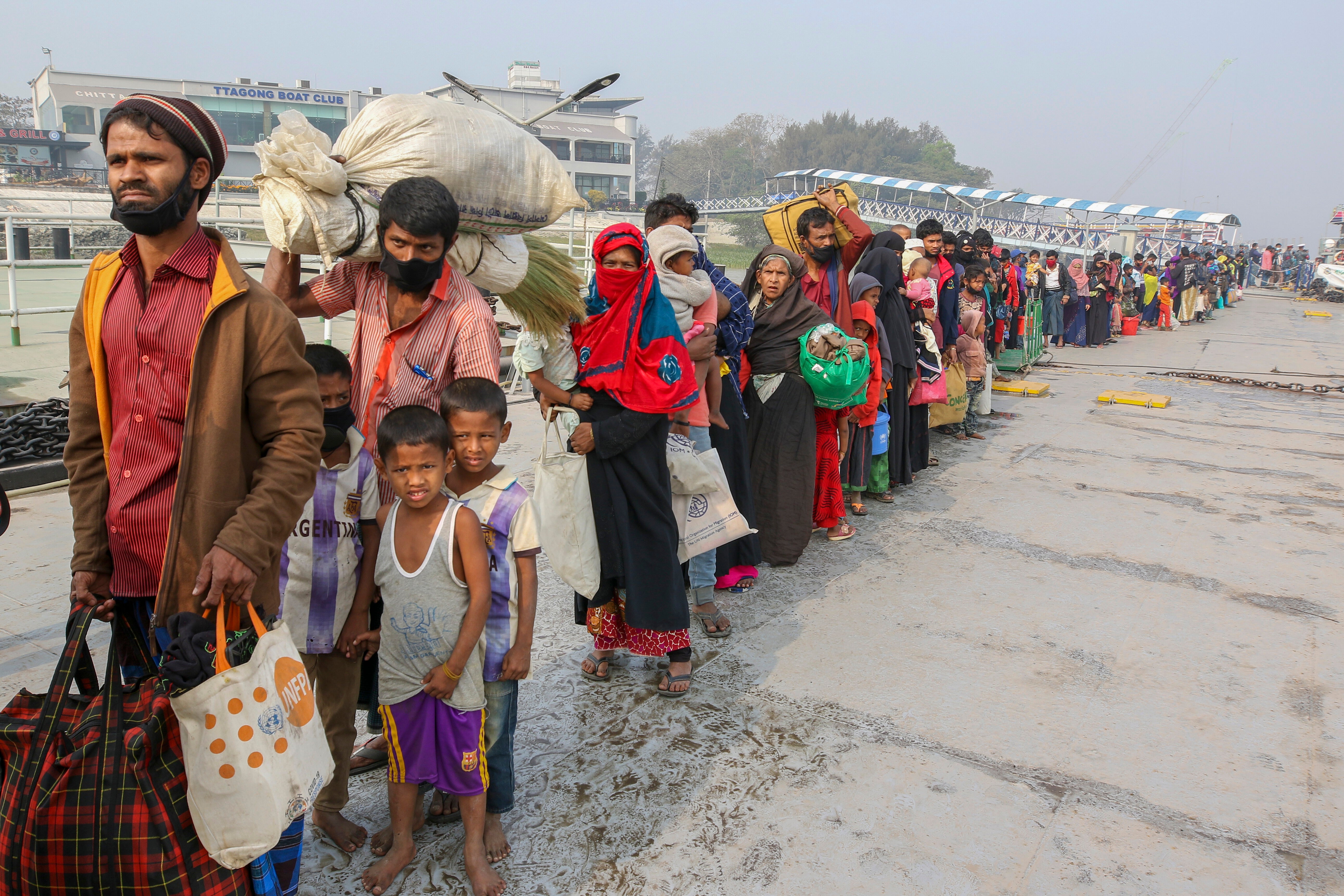UN: Boat with Rohingya refugees adrift without food, water
The United Nations says a group of Rohingya refugees is adrift in a boat in the Andaman Sea without food or water, as their families worry that many may have already died

Your support helps us to tell the story
From reproductive rights to climate change to Big Tech, The Independent is on the ground when the story is developing. Whether it's investigating the financials of Elon Musk's pro-Trump PAC or producing our latest documentary, 'The A Word', which shines a light on the American women fighting for reproductive rights, we know how important it is to parse out the facts from the messaging.
At such a critical moment in US history, we need reporters on the ground. Your donation allows us to keep sending journalists to speak to both sides of the story.
The Independent is trusted by Americans across the entire political spectrum. And unlike many other quality news outlets, we choose not to lock Americans out of our reporting and analysis with paywalls. We believe quality journalism should be available to everyone, paid for by those who can afford it.
Your support makes all the difference.A group of Rohingya refugees is adrift in a boat in the Andaman Sea without food or water, the United Nations said Wednesday, as their families worried that many may have already died.
The U.N. High Commissioner for Refugees or UNHCR, said it understands that some of the refugees died after the boat left southern Bangladesh about two weeks ago. It said it does not know the boat's exact current location.
The U.N. and rights groups including Amnesty International have said many of the refugees were ill and suffering from acute dehydration.
Reports said about 90 refugees, including some children, started the journey to seek better lives. Human traffickers often lure refugees, promising them work in Southeast Asian nations.
More than 1 million Rohingya refugees from Myanmar are living in crowded camps in Bangladesh, including more than 700,000 who fled after Myanmar's military conducted a harsh counterinsurgency operation in 2017 involving mass rape, murders and the torching of villages.
Authorities in Bangladesh said Tuesday they had no information about any boat that recently carried Rohingya refugees out of Bangladesh's waters.
“We have no idea,” said Hafizur Rahman, police chief of Teknaf in Cox’s Bazar district.
The UNHCR said the Indian coast guard has sent rescuers to look for the refugees.
“We appreciate the efforts of the Indian coast guard in deploying their search and rescue team," said Catherine Stubberfield, spokesperson for the UNHCR Regional Bureau for Asia and the Pacific.
"Given that the refugees are still adrift at sea, immediate disembarkation is absolutely critical to meeting their most basic human needs and ensuring that their safety is no longer threatened,” she said in an email.
P.N. Anup, a spokesman for the Indian coast guard, said he had "nothing to say as of now.”
The mother of a 25-year-old man on the boat said she was worried about his fate.
“Oh Allah, save all of the people that are stuck in the boat including my son with your divine magic. Put them somewhere on the coast of the river. Please fulfill the wishes of my son to go there,” said Nasima Khatun.
“Is my son alive? Has anything happened to him because of hunger? I do not know anything about what my son is doing, how he is surviving. He only took 4 liters of water,” she said.
Chris Lewa, director of the Arakan Project that monitors the Rohingya crisis, said they had heard at least eight people had died on the boat.
Lewa said they boarded the boat on Feb. 11 to reach Southeast Asia but its engine broke down.
She said the Arakan Project has been unable to contact the refugees for several days.
“We had talked to them. But now they are traceless. They have no water or food, they are drinking sea water and dying,” Lewa said by phone.
Bangladesh is eager to send the refugees in the camps back to Myanmar. Several attempts at repatriation under a joint agreement failed because the Rohingya refused to go, fearing more violence in a country that denies them basic rights including citizenship.